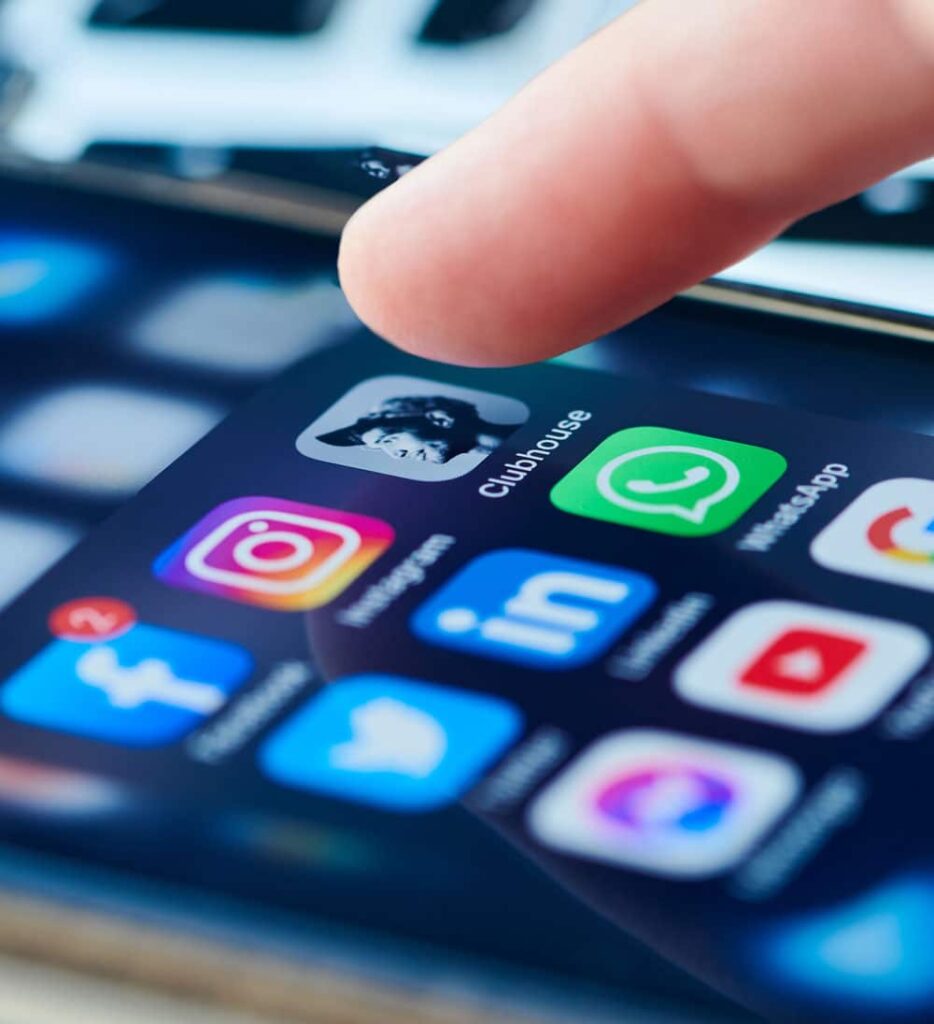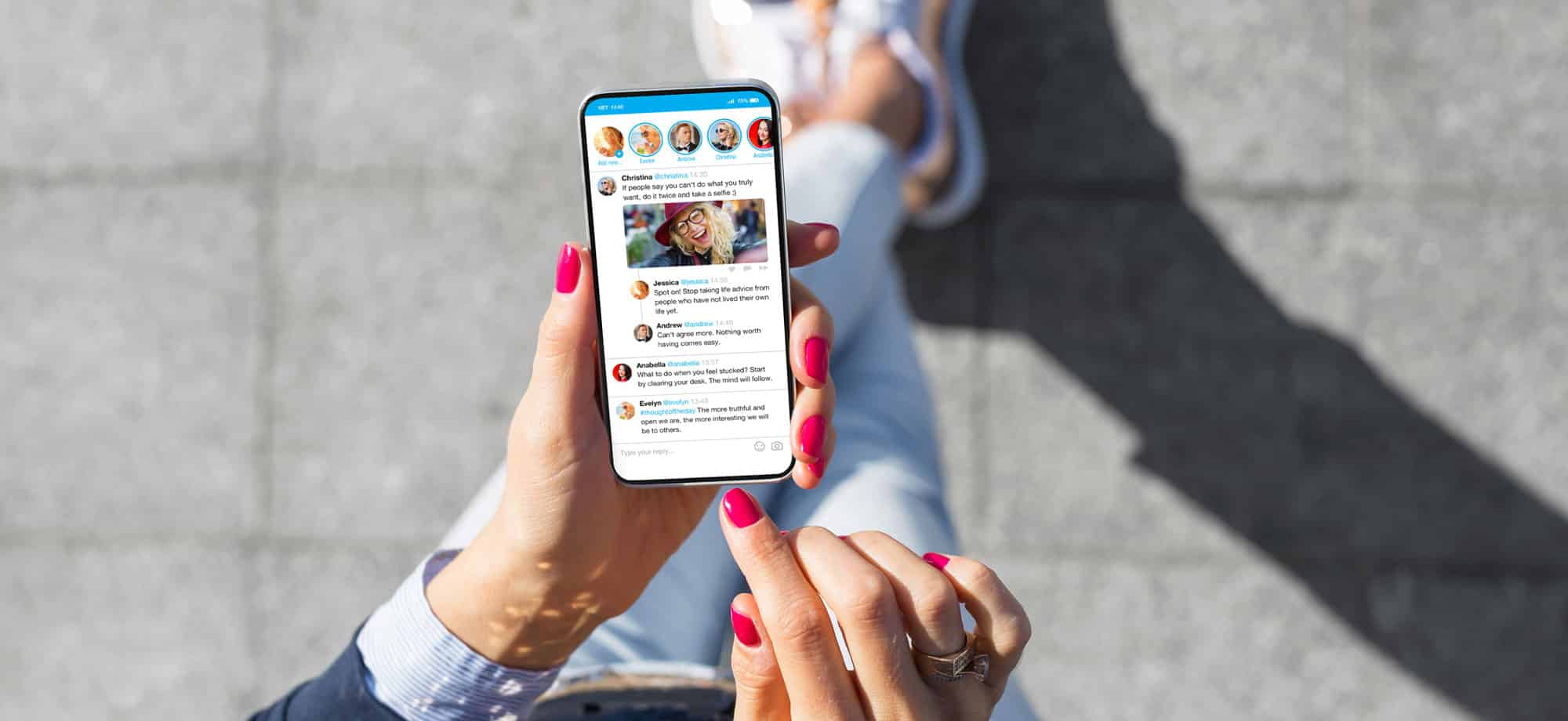By Anna McKenzie
It isn’t new or uncommon to compare our lives to the lives of others. We’re hoping to fit in with our community and surroundings, and we have a natural impulse to feel like we belong. But access to lifestyle imagery on a large scale, provided through social media, has damaged our ability to distinguish what’s real versus what isn’t. As a result, we compare ourselves to inaccurate, idealistic portraits of what we believe others’ lives are like, and the result tends to be lower self-esteem, anxiety, and even debilitating depression over what and who we’re not.
It’s abundantly clear that we’re living in a comparison culture exacerbated by social media. In order to embrace satisfaction in life as it is (not as it’s portrayed), we need to arm ourselves with awareness, support, and habits that improve our livelihood instead of deepening our despair.
Social Media and Comparison Culture
The major social media platforms you’re familiar with are not designed to improve your health. They’re designed to make you click. They don’t make you pay to join because the platform is not the product; you are. Your attention is what’s for sale. And while this is the basis of all advertising — which by itself is not unethical — we don’t often see this objective when we participate in social media. And that lack of awareness can lead us down some unexpected and unpleasant roads.
To compare yourself to these images is to judge your body, story, and life journey against an illusion. And the effects can be devastating.
Have you ever noticed how life always looks better on social media? The use of filters on Instagram, in particular, means that you can take a photo and alter its contents to create a more appealing image. If you were in the situation where the photo was taken, you would see something different than what the photo shows. Too often, the edits, cropping, filtering, and adjusting of photos skew our idea of the actual subject matter. We don’t remember that tools like makeup, lighting, and practiced poses are just imagery, not reality.

To compare yourself to these images is to judge your body, story, and life journey against an illusion. And the effects can be devastating. Teenagers and young adults are especially vulnerable to these illusions. Based on an internal research study conducted by Facebook and reported by The Wall Street Journal, Instagram makes body image worse for one in three teen girls. Among the American teens participating in the study who reported having suicidal thoughts, 6% said their thoughts of suicide came from Instagram.
The researchers also reportedly found that the app’s tendency to post only the best moments of one’s life is harmful and leads it to serve as an addictive product.
MSN News reported that Frances Haugen, a former Facebook employee, testified before Congress in 2021 that essentially, “Facebook’s algorithm exacerbates body image issues for teens on Instagram and sent users to radicalized content ahead of the Jan. 6 attack on the Capitol.” If you don’t realize you’re taking a trip down the rabbit hole when you start scrolling and clicking in your feed, you may end up getting exposed to content that can alter your thinking in very negative ways.
The Effects of Social Media on Mental Health
The average social media user has accounts on eight different platforms, according to Hootsuite research. That’s a lot of content, and a lot of potential comparing. Physical activity and face-to-face interactions have been known to improve mental health. Social media displaces them both, given that people are often sedentary when looking at their screens and feel the pretense of connection through those platforms.
The relationship between social media and depression (as well as other mental health conditions) is well documented. “A number of studies have been conducted on the impacts of social media, and it has been indicated that the prolonged use of social media platforms such as Facebook may be related to negative signs and symptoms of depression, anxiety, and stress,” according to a 2020 study published in Cureus. “Furthermore, social media can create a lot of pressure to create the stereotype that others want to see and also being as popular as others.”
Social media posts are personal PR, not depictions of the reality of life. There’s always more to the story behind the filters, cropping, and editorializing.
How to Stop Comparing Yourself to Others
If you want to continue using social media platforms, here are some ways to stop comparing yourself to others:
Recognize that what you’re seeing is what people want you to see.
Social media posts are personal PR, not depictions of the reality of life. There’s always more to the story behind the filters, cropping, and editorializing. Don’t be fooled by polished imagery and lavish descriptions.
Understand that social media platforms are built to capture your attention.
They’re not intended to improve your health. You’ll be shown content based on an algorithm that has no respect for what’s good for you mentally or emotionally.
Reduce your screen time.
Leave your phone alone for a few hours. Go on nature walks with your friends. Moderate physical activity and face-to-face social interactions will decrease your craving for endless scrolling.
Help for Anxiety and Depression
If you suffer from severe anxiety or depression, The Meadows can help. Our research-backed treatment programs are designed to help you find long-term healing from mental health conditions. You’ll gain the guidance, support, and tools you need to manage your conditions and experience fulfillment in your life again. Contact us today to learn more. We would love to speak with you.

